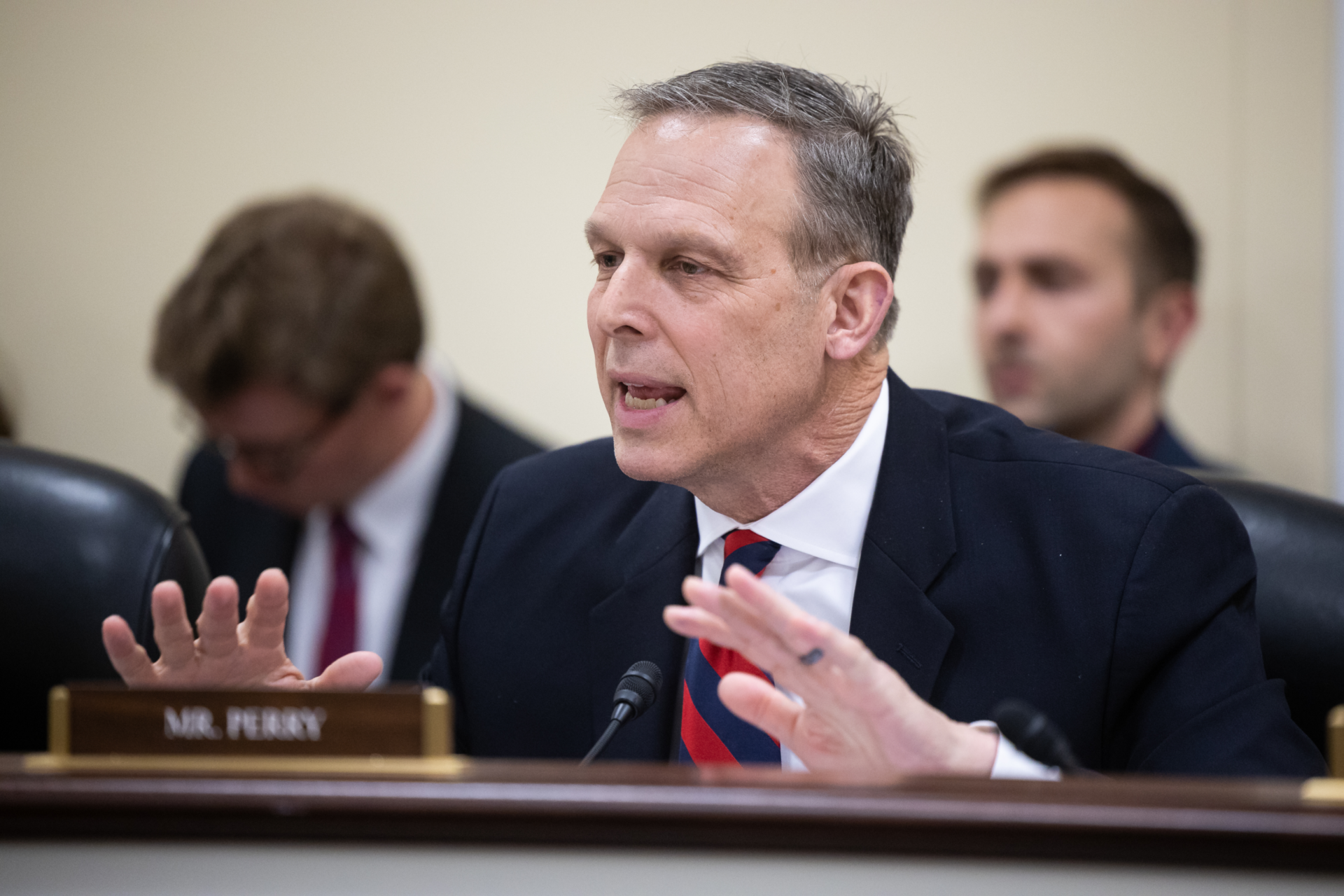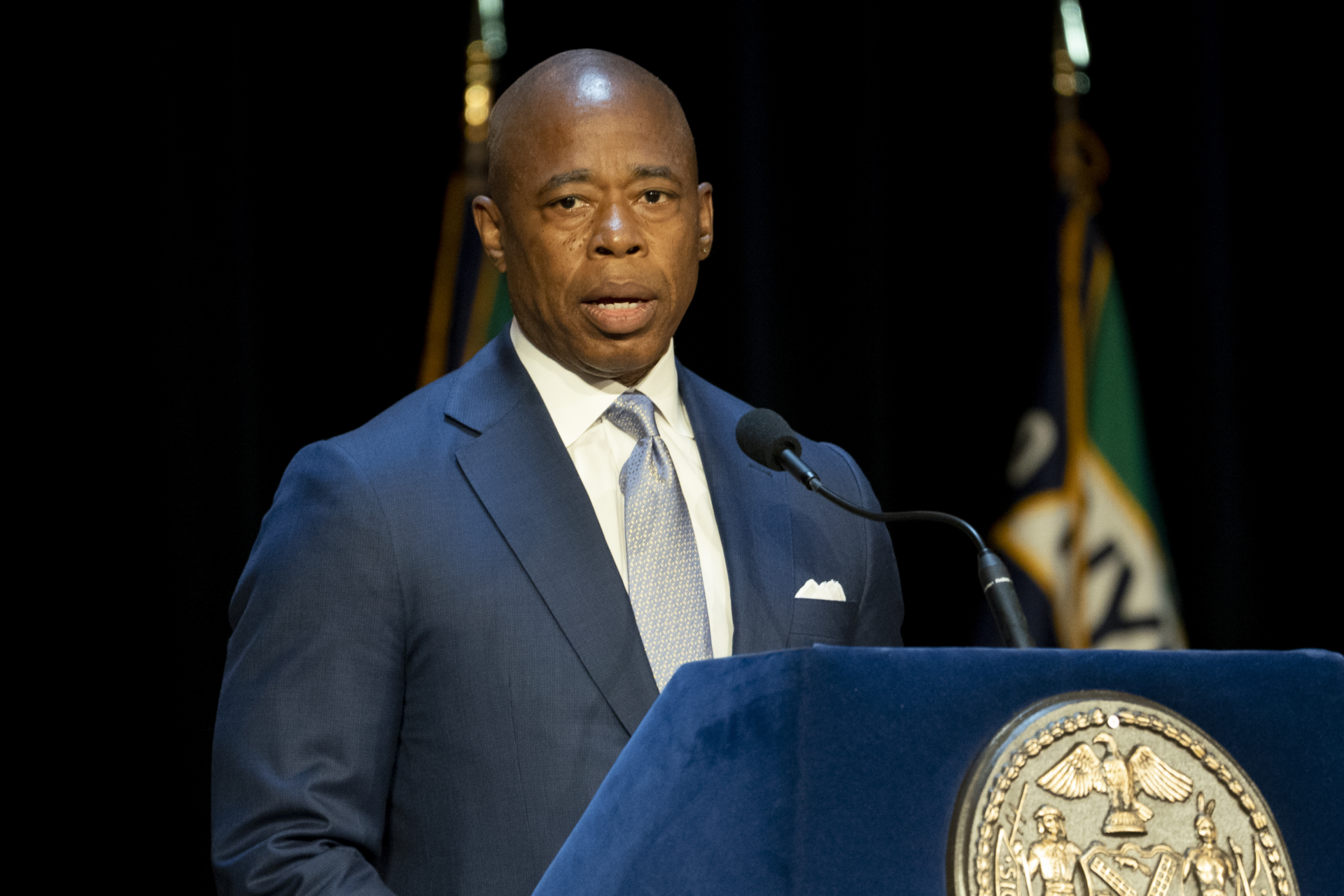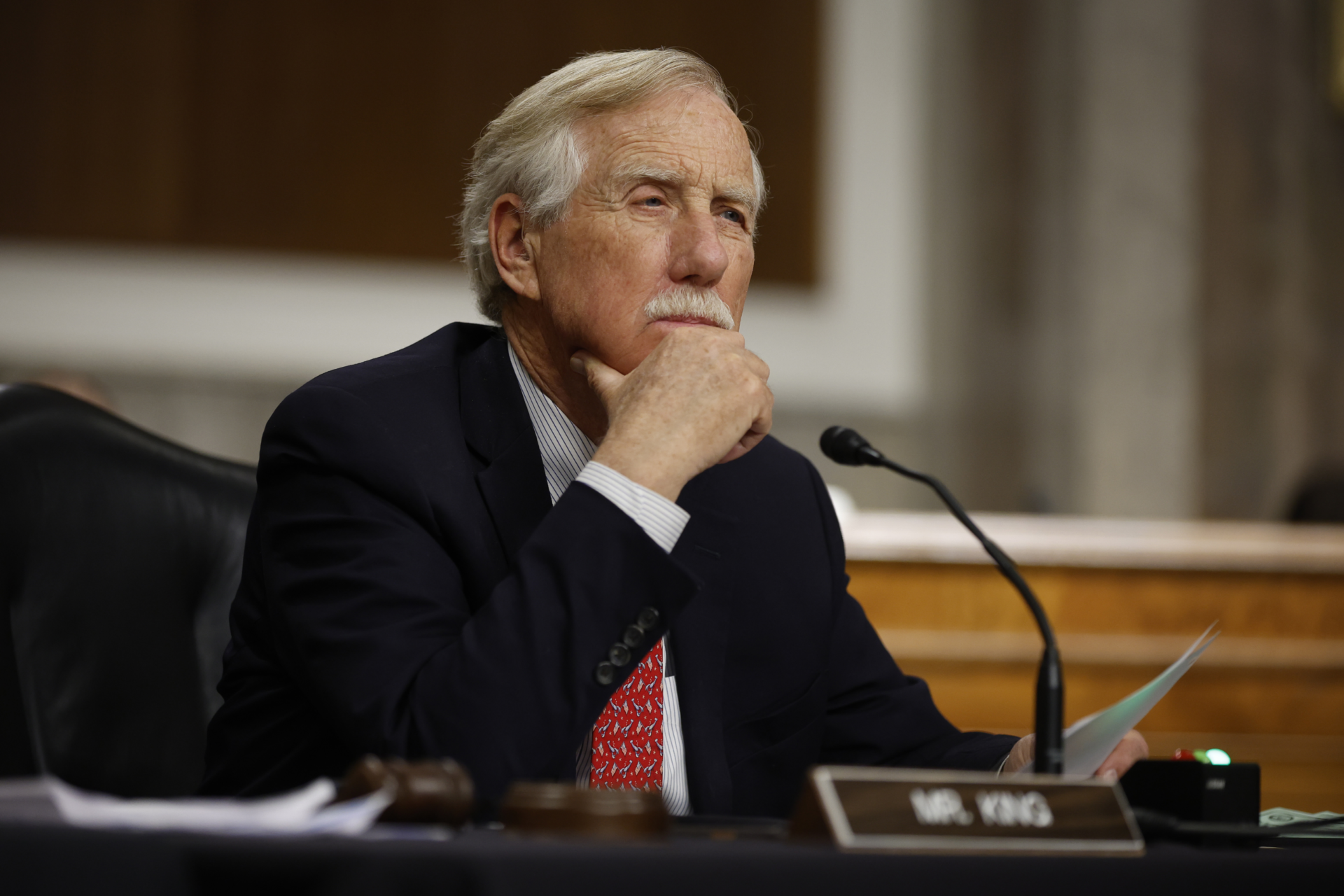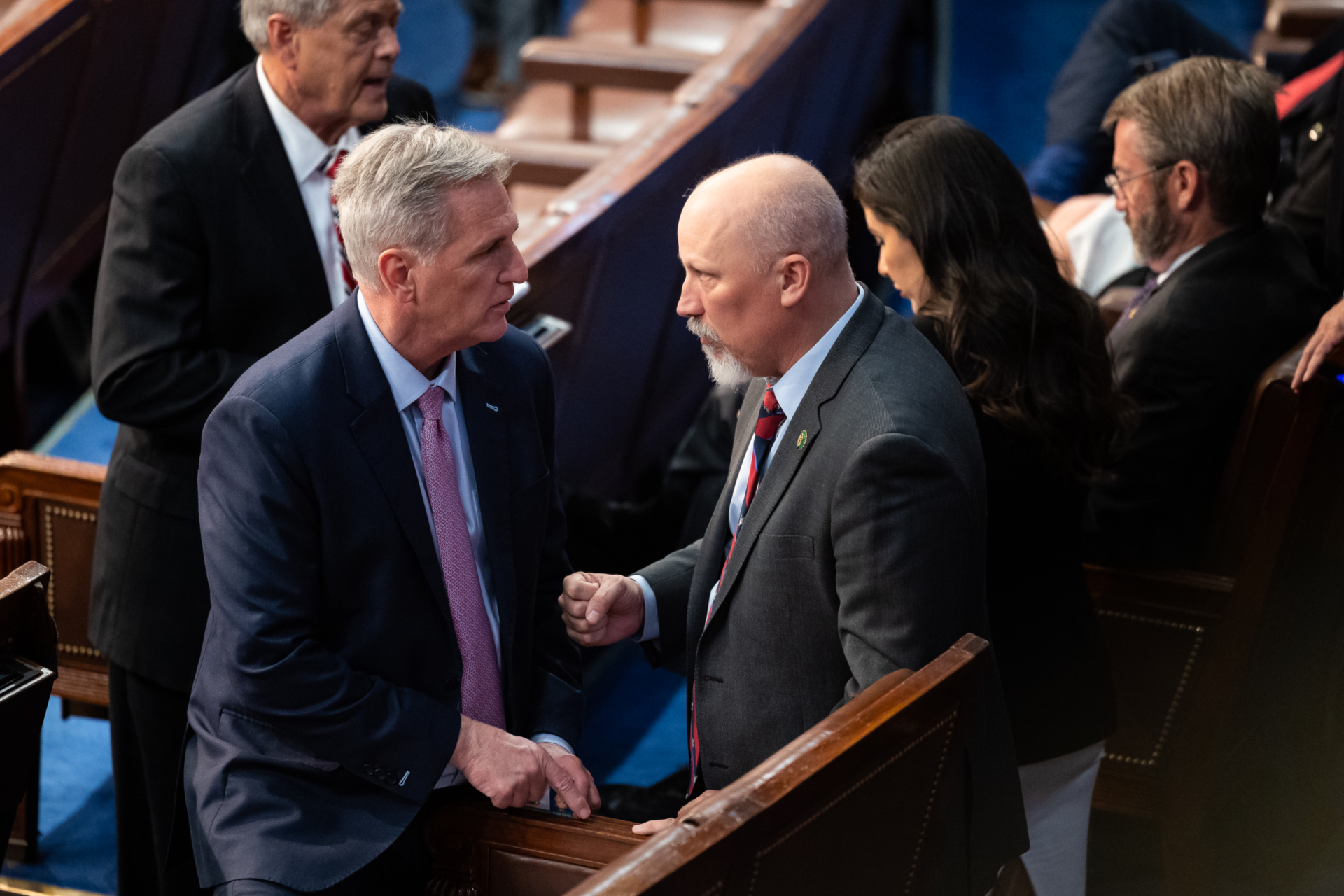In those debates, the conventional wisdom has been pretty simple: Democrats may go for kumbaya stuff, but the way to get conservatives on board is to drop the bleeding-heart talk and emphasize data and national security — “Cold, hard American interests,” as Mitch McConnell put it last year when discussing help for Ukraine.
But what if that wisdom turns out to be wrong?
It’s a question that comes up, almost as an aside, in a new book by Rajiv Shah, president of the Rockefeller Foundation and, once upon a time, Barack Obama’s improbably young administrator of the United States Agency for International Development.
The book, Big Bets, is written as a sort of leadership guide for people trying to drive large-scale change, not a political memoir. But I was struck by a short passage about his time in government, which coincided with the rise of the tea party.
The way Shah describes it, the moment felt pretty similar to our own: a hostile Congress with a newly empowered hard right eager to make generational changes to how America does business. A fraught budget season. And an administration full of elaborately résumé’d Democrats whose counterarguments seemed not to move the needle at all.
What happened next may hold some lessons for the forthcoming battles over helping Kyiv, among other recipients.
In Shah’s case, the change in question was a proposal to gut the USAID budget. And the Democratic smartypants in question was himself, a 30-something whose credentials included a medical degree, a business degree and a senior stint at the Bill & Melinda Gates Foundation. Diving into numbers and doing math, he came up with a number to cite at the upcoming appropriations hearing: The cuts to things such as food aid and anti-malaria efforts would lead to 70,000 extra childrens’ deaths.
“USAID ADMINISTRATOR: GOP BILL COULD KILL 70,000 KIDS,” one headline read.
Politicals in the White House cheered. The Republicans whose votes he needed? Not so much.“
[Agriculture Secretary] Tom Vilsack called me and had just seen Speaker Boehner and said, ‘Hey, I was just with the speaker, and you should know he’s quite unhappy,” Shah recalled this week. “Tom suggested I visit with the speaker.” At the meeting, an aide handed him a list of members to meet with. Thus began what Shah calls his apology tour. “I spent the next several months, basically visiting with some new members of the Republican caucus and some longstanding members. And then it occurred to me that I had to really deepen my relationships with the other side of the aisle.”
So far, so normal: Guy in politics says something boneheaded, grovels before people he pissed off, lives to fight another day. What’s striking, though, is his recollection of how he deepened those relationships and salvaged his budget. Rather than playing up perfectly plausible arguments about national security (desperate poverty could drive people toward al Qaeda) or the economy (winning goodwill for the U.S. in poor countries might help American firms ace out Chinese ones for natural-resource deals), he talked about religion and charity and generosity.
“A mutual friend who cares about African development through his own faith introduced me to Jim Inhofe, who was the senator from Oklahoma,” Shah told me, referring to the conservative senator, who once famously brought a snowball onto the Senate floor in order to rebut climate change. “Senator Inhofe and I met many times. We’d talk together about our values and prayed together. And he invited me to join the Senate prayer breakfast. So I was able to join that setting on a number of occasions, not to talk about policy at all, just to get to know people and their values.
”Before long, the odd-couple friends were traveling together, visiting Christian charities in Ethiopia. Shah’s bonds with religious conservatives helped fend off the cuts. They also put him in some novel company: A son of Indian immigrants who was raised in a Hindu family, he became the unlikely keynote speaker at the National Prayer Breakfast. “It was a way to have dialogue and connect with people based on a common set of values — caring for others, doing the right thing, abiding by basic moral principles, recognizing that we’re in roles of leadership and trying to use that leadership to make the world a better place.”
In other words: kumbaya. “The common view is it has to be about hard nosed national security, which sometimes is true,” he said. “But I was blown away by the passion and the commitment to this mission that was driven by kind of the best elements of faith and humanitarian caring.”
I recount the story of Shah’s political bridge-building not because it represents another success on the CV of a guy who has enjoyed many of them (and has now written an advice book based on them). Rather, the story seems notable because — less than a month and a half from yet another potential government shutdown, one that will likely involve pitched arguments about aid to Ukraine and possibly other forms of foreign assistance — it might be relevant for folks in charge of cobbling together some sort of fix.
The comparison goes only so far, of course. Ukraine is at war; Shah’s work was in the world of purely humanitarian assistance. And the tea party-era GOP he sought to work with was different from the current one, whose lingering religiosity is tied even more closely to domestic culture war battles.
All the same, both the boilerplate argument against foreign assistance and the boilerplate response to that argument have been the same going all the way back to the Marshall Plan. On the one hand: Why should American taxpayers pay for a bunch of foreigners? And on the other: A three-legged stool that involves national security (we have to fund them or else they’ll go Commie!), national prosperity (we need to rebuild Europe so they’ll buy our stuff!), and human empathy (pity the hungry children!).
Quite logically, the arguments for pouring money into Ukraine have been based on national security: In the telling of many advocates, it’s about defending the rules-based international order that benefits America, sending a message to China about Taiwan, protecting global democracy, and pushing back against a Russian government that wishes us ill. All true and logical and sound. Combine it with reports of atrocities and it makes for a pretty compelling case.
But at a time when there’s scant agreement on what America’s interests even are in terms of the rules-based international order — and a moment where certain corners of the American body politic even harbor doubts about the virtues of democracy — it may not be enough for the current legislative climate. Especially since the media environment allows a lot of people to dismiss those atrocity reports as phony.
Would a campaign built around lobbying legislators in the name of religious values be better primed to succeed? Consider an example from the other side: Tucker Carlson, who spent a good chunk of an Iowa candidates forum peppering candidates about the religious dimensions of the Ukraine war. The remarks, falsely claiming Christians were persecuted under Volodymyr Zelenskyy, were quickly criticized by U.S.-based Orthodox Church leaders for playing into Russian propaganda about waging war against secular liberalism.
Last month, he was at it again, with an odd riff on whether it’s better to be a Christian in Ukraine or Russia. “I’m only suggesting that one factor that Christians use to assess the behavior of their government, and other governments, ought to be the treatment of Christians,” he said, before noting that “one of those countries just arrested a bunch of priests,” and it wasn’t Russia.
It’s discredited stuff that has nothing to do with national interests as they’re normally defined. But in front of certain audiences, it’s pretty effective.
Which is just to say that, if you’re interested in winning support for continuing aid to Ukraine — or any number of other foreign spending commitments — similar audiences might be similarly moved by tales that rely less on chessboard logic than on scriptural tales like David and Goliath, or old chestnuts like the Golden Rule, or basic good-guy tendencies like standing up to bullies: the impulses that make people feel proud of themselves, whether or not they’re also wise statecraft.
Shah says it’s the sort of thing that can also work face-to-face in Washington power corridors. “Get in a room, close the doors, start with values and talk and get to know each other,” he said. “I think it’s very applicable. … I can understand why people reading the press would be skeptical. But it’s the only way we ever get stuff done in our history.”










